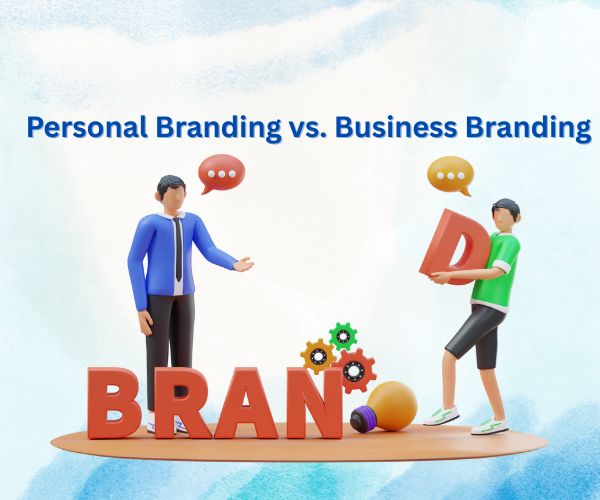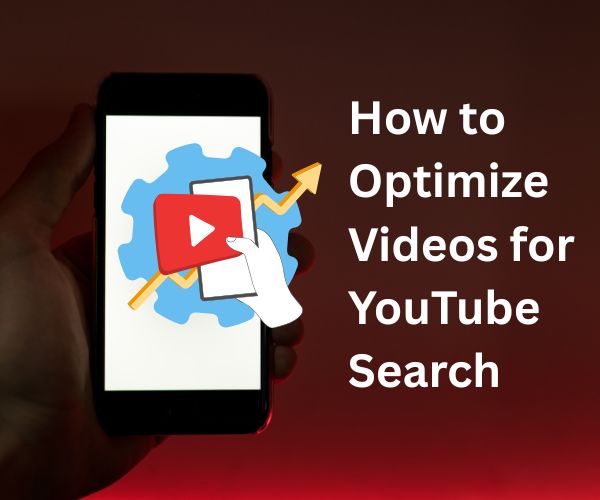Social media has evolved far beyond selfies and memes-it’s now one of the most powerful tools for building brand identity, engaging an audience, and driving business.
But here’s a common question that entrepreneurs, content creators, and small business owners often ask:
Should I build a personal brand or a business brand on social media?
The answer isn’t one-size-fits-all. Both personal and business branding have unique benefits and challenges, and your choice depends on your goals, industry, and audience.
What is Personal Branding?
Personal branding is all about showcasing you-your personality, story, expertise, and values. It’s the process of building trust and recognition based on who you are, not just what you sell.
You become the face of your brand. Your audience connects with your thoughts, your lifestyle, and your journey.
Common Traits of a Personal Brand:
- Built around an individual’s name
- Includes personal insights, behind-the-scenes content, and storytelling
- Feels human, approachable, and real
- Builds emotional connection faster
Example:
Think about Mel Robbins, the motivational speaker. People follow her for her personal experiences, mindset advice, and relatable storytelling-not just her books or programs.
What is Business Branding?
Business branding, in contrast, focuses on a company or organization as the central identity. The content and messaging highlight what the business stands for, its services or products, and the impact it wants to make.
This approach builds a strong, recognizable brand that doesn’t rely on one person to maintain it.
Common Traits of a Business Brand:
- Built around a company name and logo
- Content is more structured, strategic, and professional
- Usually involves a team or broader identity
- Easier to scale and sell in the long term
Example:
Canva is a business brand. You don’t associate it with a specific individual, yet the value and experience it offers are instantly recognizable.
Key Differences: Personal vs. Business Branding
| Feature | Personal Branding | Business Branding |
| Brand identity | Based on a real person | Based on a company name or concept |
| Tone & voice | Conversational, authentic, emotional | Strategic, professional, polished |
| Flexibility | High – more creative freedom | Needs consistency across teams & platforms |
| Trust building | Easier – human connection | Slower – built through proof & experience |
| Scalability | Limited if tied too closely to one person | Easier to grow, hire, or sell |
| Longevity | Risk of burnout or exit issues | Sustainable even without the founder |
Pros & Cons
✅ Pros of Personal Branding
- Builds quicker emotional trust
- Easy to start as a solo creator or entrepreneur
- You control the narrative
- Authentic content feels natural
❌ Cons of Personal Branding
- Tied to you-harder to delegate
- Your mistakes affect the brand
- Challenging to scale without you involved
- Harder to sell if you want to exit
✅ Pros of Business Branding
- Easy to involve a team
- More scalable and transferable
- Clear separation between personal and professional life
- Professional perception builds credibility
❌ Cons of Business Branding
- Takes longer to build emotional trust
- Needs strategic planning and consistency
- Often feels “less human” unless done creatively
When to Choose Personal Branding
Choose personal branding if:
- You are a coach, consultant, influencer, or solopreneur
- Your personality and story are a big part of what you’re offering
- You want to connect directly and emotionally with your audience
- You’re comfortable being visible and sharing parts of your life
Example:
Ali Abdaal built his personal brand around productivity, education, and lifestyle. His personality is central to his content-and it works.
Check Role of Influencer Marketing in Your SMM Strategy
When to Choose Business Branding
Choose business branding if:
- You’re building a team or agency
- You plan to scale, hire, or sell your company eventually
- You want your product/service to stand on its own
- You prefer keeping your personal life separate from your work
Example:
Shopify has a strong business brand with consistent tone, values, and educational content. It’s not reliant on a single person.
Can You Combine Both?
Yes! In fact, many successful entrepreneurs use a hybrid approach.
💡 Example:
Jasmine Star is a personal brand, but she also runs Social Curator, a business brand. Her audience trusts her personally and also buys into her company’s offerings.
You can use your personal brand to build trust and authority, while your business brand delivers value and scales over time.
Content Ideas for Each Branding Type
| Content Type | Personal Branding | Business Branding |
| Instagram Post | “3 things I’ve learned as a freelancer” | “Client results using our latest service” |
| Stories | Daily routine, behind-the-scenes | Product teasers, team highlights |
| Blog Topic | “My journey to full-time entrepreneurship” | “How our service helps small businesses grow” |
| About Page | A personal story or mission | Company vision, team, values |
FAQs
❓ Is personal branding risky?
It can be. If your audience relies solely on you, it’s hard to take a break or pivot. But it’s also the fastest way to build trust if you’re just starting out.
❓ Can I switch from personal to business branding later?
Absolutely. Many people build a personal audience first, then branch out into a business brand. Just communicate the transition clearly.
❓ Can I have both at the same time?
Yes! You can build your personal brand on your own profile and develop a business brand alongside it. The key is keeping messaging and goals clear on both ends.
❓ Which is better for monetization?
It depends. Personal brands monetize through courses, speaking, coaching, and content. Business brands often offer services, products, or subscriptions and may scale faster.
Final Thoughts
At the end of the day, the decision between personal and business branding comes down to your goals.
If you’re looking to build deep connections, grow organically, and aren’t afraid to be the face of your message, personal branding is powerful. If you want to scale, build a team, or separate yourself from the day-to-day, business branding offers more structure and long-term flexibility.
The best part? You don’t have to choose one forever.
Many of the most successful brands today evolved over time-starting personally, growing professionally.


